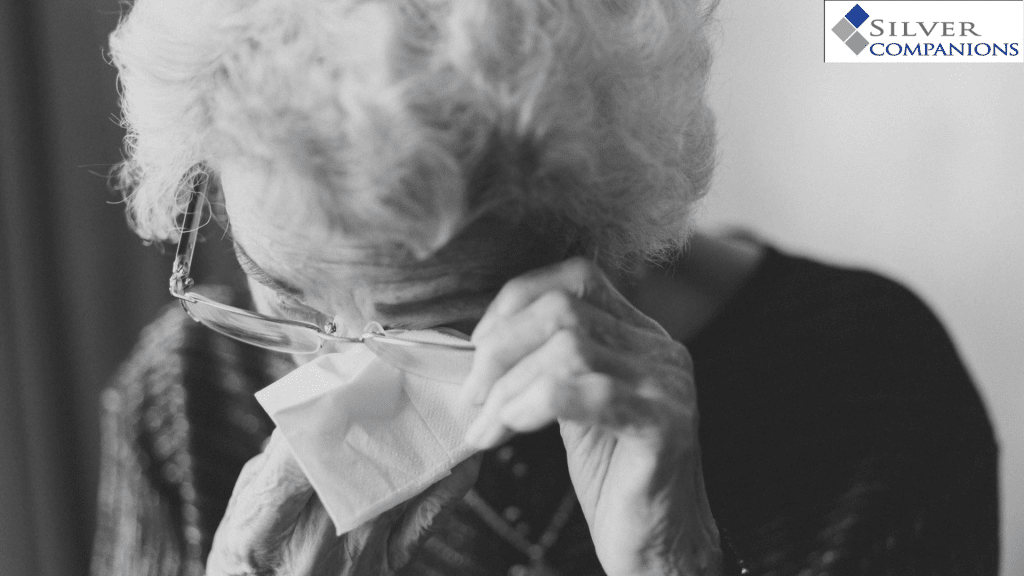
When we think of seniors and loss, most of us think about them losing long-time friends and loved ones. Those fortunate enough to make it to their golden years are always facing loss, in some form or another, and that is tough enough to deal with.
What most people who are below age 65 don’t consider, is the other losses they fear, just as a result of getting older. Losses are not limited to the loss of the people in their lives, as we will explore in this post.
What are some other losses that seniors experience?
- Loss of independence – This takes many forms. Seniors can lose their driving privileges or their vehicle. Seniors also may lose the ability to live on their own (more in “Loss of their home”). They may even need a caregiver, whether in-home, or possibly need more systematic care in a live-in facility like a nursing home. So many categories fall under loss of independence. It covers every way that seniors have to rely on others for things that they were perfectly capable of doing on their own, and now they can’t. It is a huge blow to their self-esteem, and can cause them to experience sadness, lethargy, and even depression.
- Loss of their home – This can be caused by finances (more in “Loss of financial security”), loss of independence, or just because their home has become too much to take care of in their older years. Often this home has been one of the few constants in their life, and to lose it, even if moving to a perfectly acceptable or even beautiful place, can bring deep feelings of loss. They may feel they have lost a piece of themselves, and it can really take a toll on their emotional well-being.
- Loss of financial security – Despite planning financially for their twilight years, statistics show that, more often than not, the planning wasn’t enough to sustain them. This can be because of not setting aside enough, or poor investment decisions, or just starting too late to accumulate enough. On the other hand, financial distress can be brought on by large medical bills, the sudden need for daily care, This might be in-home care, part or full-time, or they may need to be moved to a facility like a nursing home or assisted living. Each of these options offers different levels of care and pricing, but it can still take a toll on finances that did not offer a cushion for such an expense.
- Loss of mobility – Sadly, as we age, our mobility often becomes more limited. Sometimes it is just age setting in, or in some cases, it could be brought on by a traumatic event like a fall. When it’s harder to move around, everything becomes a chore. Even just getting up out of bed or out of a chair can be a huge challenge. Depending on how extreme the limitation, it’s likely that the risk of falling and injuring themselves becomes even higher than before. In some cases, they may need the assistance of others, or just a device, like a cane or walker, to help them move around. Stairs can also be a real challenge in many cases, and even a huge risk, especially if they’re steep.
- Loss of cognitive ability – Alzheimers and dementia are two extremes in this area, but there are many levels between cognitive competence and cognitive inability. As we age, everything starts depleting, including our mental capacity. This can also be exacerbated by our habits, those from when we are younger, as well as current habits. Alcohol, for example, can play a role in losing brain cells, especially if consumed in excess. Injuries, especially to one’s head, can also cause trauma that affect cognitive function. Regardless of the cause, when a person’s brain isn’t working the way it used to, it can cause frustration, and even anger. They may struggle to find the right words, or talk with slurred speech, or just not be able to process new information as quickly as they used to. All of these things can be difficult to adjust to for the aging person.
- Loss of appetite – Malnutrition is a condition affecting many seniors these days. One cause of this is simple loss of appetite. When they are not eating as much, and possibly not making the best choices in terms of nutrition, that can often lead to malnutrition. In some cases, it may be a mindset of, “At my age, I’ll eat what I want”. Certainly understandable, however, if their eating habits are out of balance, it can adversely affect their health more so than when they were younger.
- Loss of social engagement – This loss hits home a lot like the death of close friends or family members. When someone has, for example, a close social circle of friends they regularly socialize with, the provides them with a level of happiness and comfort. If something happens to alter the ability to socialize with those people anymore, like the pandemic when everyone was sheltering in place, it is felt as a loss. Even though the people are still alive, when they are not a part of the person’s life on the regular basis they once were, it feels similar to that of someone’s passing. This can cause irritability, sadness, and even depression.
Seniors facing all of this potential loss, it’s no surprise that they sometimes struggle emotionally. If you are a senior dealing with loss of any kind, just know we feel for you, and are here to help. If you are not a senior, chances are you have friends and/or family who are, and hopefully this will give you some insight into some of the challenges faced by seniors.
If you or one of your friends or loved ones is facing any of these challenges, we are here to help. On top of our many levels of in-home care services, we also have many resources at our disposal, and can often help, or help folks find the right help. Contact us today for a complimentary consultation.





